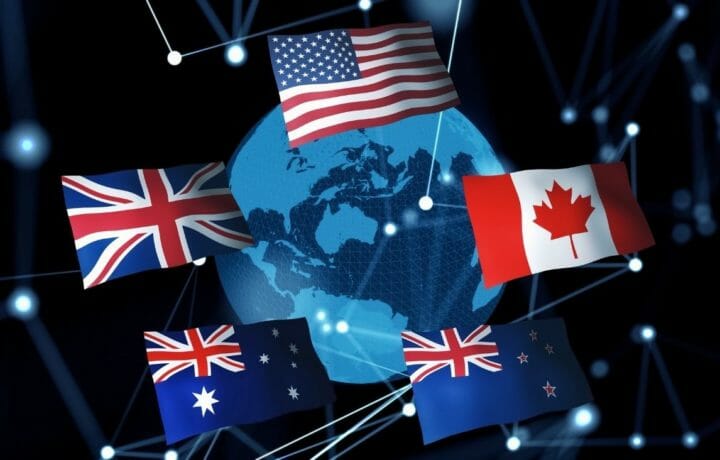The Five Eyes Alliance as some of you probably know, is an information sharing agreement between the governments of the United States, Australia, New Zealand, Great Britain and Canada. This intelligence alliance has its roots in World War II and picked up steam during the Cold War. It has been both praised for being a necessity and criticized for getting around some of the participating countries intelligence agencies. We hear about security clearance violations, breaches of classified information, and sometimes-overt spying cases on a regular basis in the United States. From the airman in Massachusetts to a Navy Lieutenant in Florida and finally, the former NSA employee in Colorado, it seems like the last 15 months or so has been a voluminous run on both stupidity and greed as to our country’s secrets. This does not even include the discussion on the alleged breaches of security that politicians on both sides of the aisle have been accused of committing the last 20 years.
Five Eye Allies Leaks and Breaches
Our partner countries have become justifiably concerned about recent events, especially as it relates to the “Discord-Ukraine” event and rightfully so. However, due to the massive amount of intelligence we gather and having to shift to the insensitive name Four Eyes, I do not think our partnership with them is in jeopardy anytime soon, but it still is a very bad look. But are we the only ally that has these problems? In a bit of disappointing yet strangely relieving news, our allies seem to be wrought with their own set of reckless and sometimes intentional breach of classified material. Consider the following:
- Hassad Arshad, a member of a “sensitive Government organization”, according news reports was charged in Great Britain last month for taking “Top Secret” documents home with him. Allegedly, he took his mobile phone into a top secret location and connected it to a SIPRNET-like network, to transfer the data (not sure if it was copy or transfer) and take it home. He then is accused of moving the information to his personal home computer.
- Last year, an Australian Department of Home Affairs contractor, stripped the classified status off 500 documents and sent them to his personal email address so he could work on them from home. Apparently, even though he is not working for the same company, another government contractor currently employs him.
- Two scientists who worked for the Canadian National Microbiology Laboratory in Winnipeg were fired for stealing classified material. The Chinese nationals have apparently disappeared. The Royal Canadian Mounted Police have also had high profile examples recently of employees providing classified information to foreign entities or terrorist organizations.
- Finally, not to exclude anyone from the party, a senior analyst for the New Zealand Public Service Commission was recently detained by the Secret Intelligence Service for providing classified information to the Chinese government.
We’re Not the Problem Child
While some of the above appear to be traditional spying and some simply buffoonery, the problems with security violations are not limited to just the United States. On what scale are we publicly hearing about other allies security messes is a factor in determining the level of frequency of these offenses, but it is clear they do exist.

